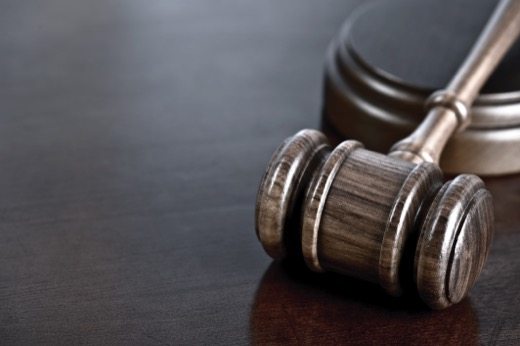Contaminated Drinking Water and the State of Florida
Flint, Michigan has been the news in recent months for the horrible drinking water problems it is experiencing. While Flint may be getting the headlines, it is not the only area with contaminated drinking water – we have our own contaminated water problems right here in the state of Florida.
History of Contamination in Florida
Extensive groundwater continuation was discovered in wells in Florida in the early 1980s. Specifically, the wells were contaminated with the chemical ethylene dibromide (EDB). This led to widespread public attention to issues surrounding the quality of water in Florida’s private wells. The Florida Department of Health (DOH) investigates wells and other areas that may be at risk following a chemical spill. If the water level is found to be contaminated above an acceptable level, DOH will provide an alternative water source. These levels are referred to as the Maximum Contamination Level (MCL) or Health Advisory Level (HAL).
Private Wells In the State of Florida
Approximately 20 percent of Florida’s residents receive their water from private wells. In the state of Florida, all public water systems must conduct routine testing to determine if that water meets the state’s drinking water system. However, private well owners are responsible for ensuring the quality of their own drinking water.
Contaminated drinking water causes thousands of cases of illness annually according to the Federal Centers for Disease Control and Prevention (CDC). It causes a number of diseases and can even be fatal. Two of the most common contaminants are nitrate and microbes.
Water contaminated by high levels of nitrate in drinking water is particularly dangerous to infant children. If the baby consumes the contaminated water, it reacts with the baby’s hemoglobin in the blood. It then causes an anemic condition referred to as the “blue baby syndrome.”
Microbes, or bacteria, are frequently not harmful. However, their presence may be an indication that other parasites, viruses or harmful bacteria are also present. The most common symptoms caused by harmful bacteria in drinking water are nausea, vomiting and diarrhea.
Private well owners must properly maintain their well and water system. This includes performing regular water quality testing. Take the steps necessary so your private water supply remains healthy and safe.
Public Water Systems in the State of Florida
Public water systems are subject to the Federal Safe Drinking Water Act (SDWA). This program is administered by the federal Environmental Protection Agency (EPA). In the state of Florida, the EPA has delegated this to the Florida Department of Environmental Protection (FDEP). The FDEP has entered into an agreement with the Florida Department of Health (FDOH). The Public Drinking Water Systems Program is tasked with implementing the SDWA program in eight of the largest counties in Florida. These counties include Miami-Dade, Lee, Polk, Sarasota, Broward, Volusia, Palm Beach and Hillsborough.
If you have concerns about the public water system affecting your home, first contact your public water utility. If that does not resolve the issue you may contact the regulatory agency. In the state of Florida, in most counties this would be the FDEP. However, if you live in one of the eight counties listed about, that regulatory agency would be the FDOH.
New Rule?
A new water quality rule was approved by the governor’s Environmental Regulation Commission. It passed with a 3-2 vote and has been controversial.
The new rule would update limits on 43 chemicals and impose limits on 39 additional toxins dumped into Florida’s streams, rivers and coastal waters. This rule would update Florida’s the standards for water quality in Florida for the first time in the past 25 years. It would allow for 23 toxins, 18 of which are carcinogenic, to be dumped into the waters. The chemicals are released by agriculture, dry cleaners, wastewater treatment plants, pulp producers, paper producers, oil and gas drilling companies and electricity plants.
A minimum of 10 – and potentially more – of the chemicals will be allowed to be dumped into sources of drinking water in amounts over the levels of current standards for drinking water. As a result, the water utility companies will have to remove the chemicals before supplying it to consumers.
The state of Florida allows industries to discharge toxins in bodies of water every day based on permits. Those industries self-report to DEP if they are meeting allowed discharge goals. DEP will order action for correction if it believes a company exceeded its allowed amounts of toxic discharge. Regulators for the state of Florida test its bodies of water only once every five years.
Some have pointed out that the impact of the rule on private wells is unclear. Water from wells is not cleaned by the water utilities. Instead, it goes straight to the homeowners’ taps.
My Water Tastes Funny – Does That Mean It Is Contaminated?
Not necessarily. People in Florida often complain that their water “tastes funny.”
Generally speaking, this bad flavor is a result of common contaminants found in Florida drinking water. These contaminants are not harmful or toxic and therefore are not regulated. The contaminants only affect the taste of the drinking water.
If your water tastes salty or bitter, that is probably a result of high amounts of minerals in Florida’s water. These can include sodium, magnesium, calcium, carbonate, sulfate, hydrogen carbonate and nitrate anions. Many minerals are great for your health!
If your water tastes metallic it probably is from high levels of metal. These can include iron, copper, manganese and zinc. Metallic tasting water may indicate that you need new plumbing.
If your water tastes like bleach, it is probably the result of chloramine. Chloramine is frequently used to clean water.
Reach Out to the Lawyers at Madalon Law About Your Contaminated Water Concerns
If you believe that your water may be contaminated, contact the lawyers at Madalon Law. Our determined Florida personal injury attorneys are available to meet with you to discuss the specific facts and circumstances of your case. If you are the victim of contaminated drinking water, you may be entitled to compensation. The lawyers at Madalon Law can assist you in forging ahead with a suit or other action as may be appropriate to protect you and your children.








